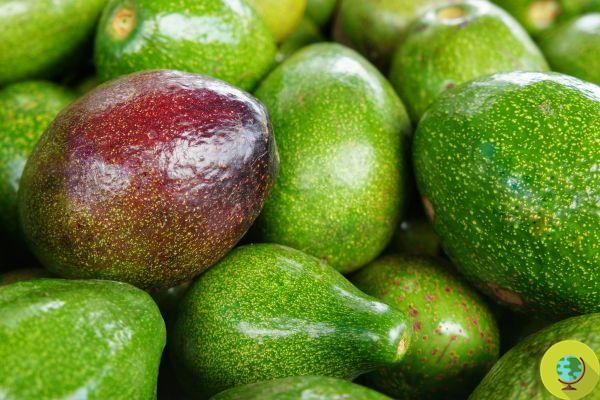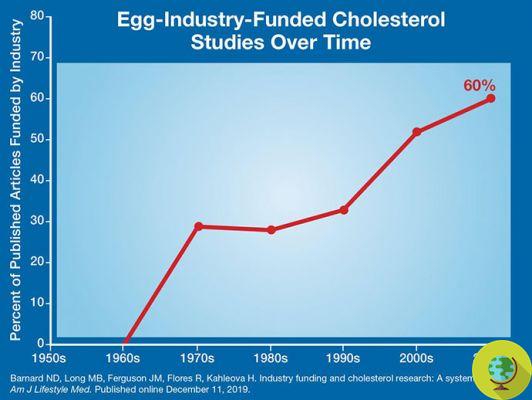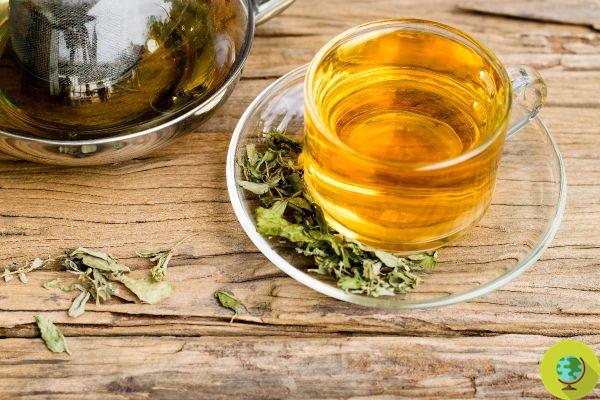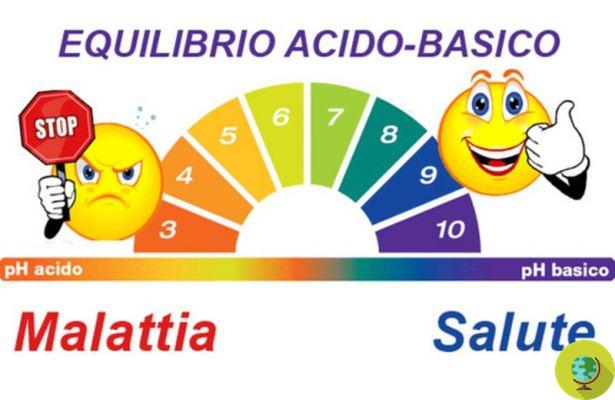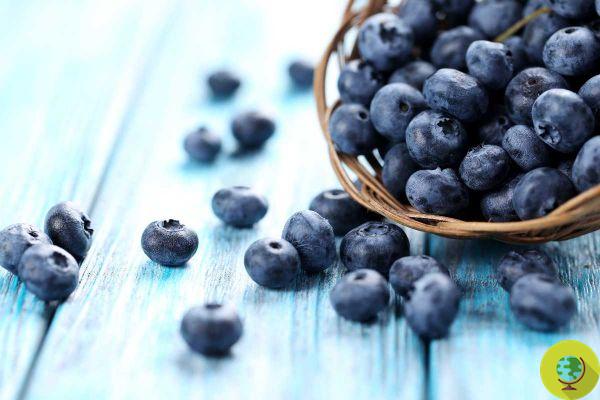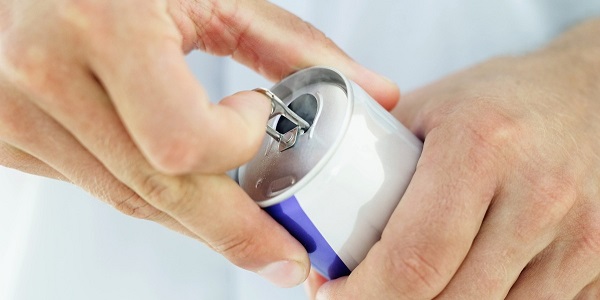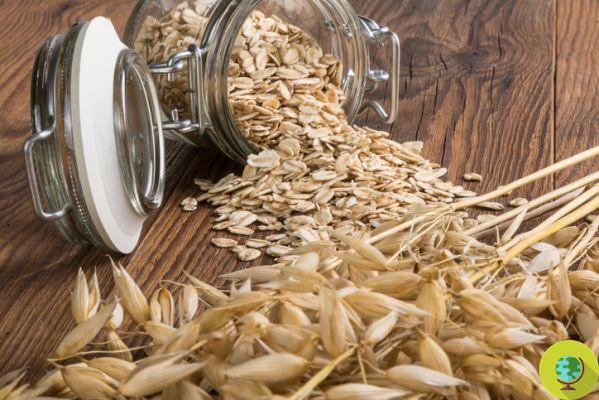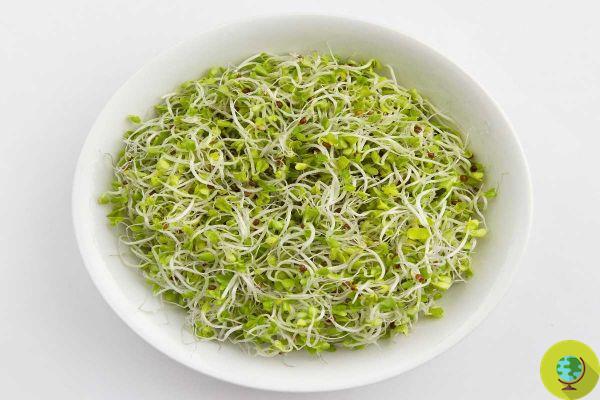
Sprouts are germinated seeds, also known as tender plants and considered "live food". Let's find out all about broccoli sprouts
Sprouts are germinated seeds, also known as tender plants and considered "live food". Let's find out all about broccoli sprouts
Just like alfalfa and bean sprouts, i broccoli sprouts they are power plants, that is superfoods rich in properties and benefits. Let's find out everything you need to know about these tiny and tender edible plants. (Read also: Broccoli: properties and everything you need to know to enhance its benefits)
Index
What are broccoli sprouts
The broccoli sprouts are 3-5 day broccoli plants. Like most sprouts, they have small green leaves and white stems a few centimeters long and still attached to the seed, very similar aesthetically to alfalfa sprouts.
Most people describe their flavor as earthy, similar to that of radishes. Broccoli sprouts are generally eaten raw to add texture and crunchiness to dishes such as sandwiches, salads, and vegetables; you can also cook them and enjoy them hot, along with French fries or curry.
Nutritional values of broccoli sprouts
As mentioned, broccoli sprouts are a real superfood. Great source of protein, fiber, vitamins, minerals and substances phytochemicals, ie bioactive plant compounds that protect plants from the sun and insects, but also have numerous health benefits.
An approximately 85-gram serving of broccoli sprouts contains:
- calories: 35
- carbohydrates: 5 grams
- fiber: 4 grams
- proteins: 2 grams
- fat: 0,5 grams
- vitamin C: 60% of the recommended daily value
- vitamin A: 10% of the recommended daily value
- calcium: 6% of the recommended daily value
Only a portion of these sprouts provide high amounts of vitamin C, which is known for its antioxidant and immunostimulating properties.
In addition, they contain a phytochemical called sulforaphane which is speculated to be responsible for most of the health benefits of these crunchy buds. The studies show that sulforaphane has a bioavailability of 82%, which means that it is absorbed quickly and easily, allowing the body to take advantage of its properties. Additionally, broccoli sprouts provide about 100 times more glucoraphanin, an inactive compound that is converted into the beneficial phytochemical sulforaphane after cutting or chewing.
How to grow them
To grow broccoli sprouts at home, use a glass jar and pour your seeds inside, so as to cover the bottom; at this point, proceed with soaking and adding two or three fingers of water. Let your seeds sit for 6 to 12 hours depending on the size.
Once the soaking is finished, close the jar with a light net cloth and seal everything with an elastic; now it's time to drain them, simply by overturning the container and letting all the soaking water flow out. Rinse the sprouts at least 2 or 3 times a day, making sure that no water remains on the bottom.
The sprouts will start sprouting after 1 or 2 days e they will be ready after 3-5 days, can be stored in the refrigerator in an open container for 5 to 7 days. (Also Read: 10 Ideas For Growing Sprouts Without Buying A Sprouter)
Benefits of broccoli sprouts
Thanks to their sulforaphane content, broccoli sprouts have a myriad of health benefits.
Antitumor properties
The sulforaphane present in these buds is a compound with powerful anticancer properties. Studies show that sulforaphane can:
- promote tumor cell apoptosis or programmed cell death
- inhibit angiogenesis, or the growth of new blood vessels, which feeds malignant cells
- reduce inflammation
- reduce susceptibility to carcinogenic substances
- reduce the invasion and spread of cancer cells
Furthermore, sulforaphane acts by increasing some detoxifying enzymes in the liver, which counteract and help eliminate the potential carcinogenic effects of toxins or chemicals from both food and the environment.
La search it also suggests that this plant chemical may play a role in epigenetic modulation, which means it may help turn on and off certain genes involved in cancer inhibition or expression. Studies in test tubes similarly show that the sulforaphane of broccoli sprouts could fight the breast cancer, prostate, colon, liver and lungs.
They support mental and brain health
The sulforaphane in broccoli sprouts may also protect against some brain conditions, including ictus, Alzheimer's disease and disease of Parkinson, and improve some symptoms of autism spectrum disorders (ASD). In the case of a stroke, for example, sulforaphane can reduce the death of brain cells, thereby reducing the loss of brain tissue.
In cases of Alzheimer's disease, the sulforaphane protects brain cells from the toxicity of beta-amyloid, the protein whose accumulation in the brain is linked to the onset of the disease. Furthermore, studies test tubes show that sulforaphane can protect brain cells and improve mental disorders such as memory loss.
Parkinson's disease is caused by the impairment or death of brain cells that produce dopamine, a chemical transmitter that affects mood, concentration and memory. Sulforaphane has been shown to protect these cells from oxidative stress caused by harmful free radicals.
Finally, sulforaphane appears to improve the behavioral characteristics of ASD, which may also be linked to stress-induced oxidative damage. For example, in one study By 18 weeks out of 29 adults with ASD, those who received sulforaphane treatment derived from broccoli sprouts showed significant improvements in social interactions, repetitive behaviors, and verbal communication skills compared to those in a control group.
They promote gut health
Due to its antioxidant and antibacterial properties, the sulforaphane in broccoli sprouts can promote gut health.
Chronic oxidative stress can cause constipation, but the antioxidant effects of sulforaphane are believed to help intestinal cells function normally, and may help improve bowel movements.
Furthermore, i studies show that the antibacterial effect of sulforaphane can modify friendly bacteria in the gut to promote soft stools; but that's not all, as this amazing substance also has a powerful antibacterial effect against H. pylori, a bacterium that can cause digestive tract infections, gastritis and stomach ulcers. One study of 16 weeks out of 50 people with gastritis caused by H. pylori found that eating about 70 grams of broccoli sprouts could reduce gastric infections and inflammation.
Further research has also shown that this substance can help treat cases of antibiotic-resistant strains when combined with conventional drug therapies.
They improve heart health
Sprouts can reduce risk factors for heart disease, such as high levels of triglycerides and LDL (bad) cholesterol. They are also rich in coenzyme Q10, a compound capable of lowering blood pressure.
They improve insulin sensitivity
Some studies test tubes show that broccoli sprout extract can improve insulin sensitivity, which in turn can reduce blood sugar levels; hence, they are effective for patients with diabetes. Read also: Broccoli sprouts: valuable allies against type 2 diabetes
They improve joint health
Studies test tubes determined that the sulforaphane present in broccoli sprouts can reduce inflammatory markers related to arthritis, a condition that can cause painful inflammation in the joints. (Read also: Broccoli to prevent arthritis and osteoarthritis)
Possible side effects
Broccoli and other sprouts need moist conditions to sprout; Unfortunately, bacteria such as Salmonella, E. coli and Listeria monocytogenes also proliferate under similar conditions. This means that the sprouts can be contaminated and, if you eat them, you may have afood poisoning with symptoms such as fever, diarrhea and stomach cramps. This is why it is important to wash any type of sprouts before eating them.
Another thing to keep in mind is that broccoli sprouts contain isothiocyanates, the group of plant compounds to which sulforaphane belongs; it is believed that these are goitogens, that is capable of altering the absorption of iodine by the body. This means that eating excessive amounts of broccoli sprouts can impair thyroid function and increase the risk of hypothyroidism, a condition characterized by an underactive thyroid.
Finally, sulforaphane can interact with some medications and limit its effectiveness, among these we point out those commonly used to treat fluid retention, hypertension and arthritis.
Follow us on Telegram | Instagram | Facebook | TikTok | Youtube
Photos: WebMd
Could it be interesting for you:
- Live food: how to make lentil sprouts and the tastiest ideas for eating them
- How you should wash broccoli: tricks to get rid of worms and parasites completely
- In broccoli found the secret to blocking tumors
- Not just seeds! How and why to sprout almonds, walnuts and dried fruit as well
- Bean sprouts: nutritional properties, benefits, calories and how to cook them
- Broccoli and broccoli sprouts to prevent breast cancer
- How to grow sprouts in a jar
- Sprouts and their fantastic nutritional properties




